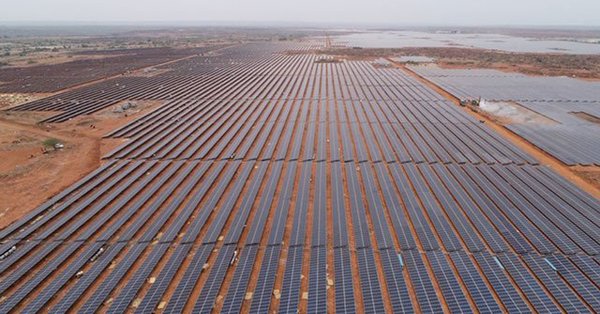Addressing solar power developers’ concerns, Ministry of New and Renewable Energy has clarified that they can install direct current (DC) capacity in a solar plant in excess of the contracted alternate current (AC) capacity.
“As long as the AC capacity of the solar PV power plant is in accordance with the contracted AC capacity and meets the range of energy supply based on Capacity Utilisation Factor (CUF) requirements, the design and installation of solar capacity on the DC side should be left to the generator/developer”—read the advisory by ministry.
To support its decision, the ministry said that “the setting up of generation capacity is an unlicensed activity and therefore any person is entitled to set up any capacity which he desires to set up, and sell power to any entity which may want to buy it.”
The ministry also clarified that the contracting party (DISCOM) is not obliged to buy any power in excess of the contracted quantum, while there is provision of penalty in case the supply falls short of the contracted quantity.
MNRE issued the advisory after it received representations from various solar developers that recently few States have raised questions and concerns around globally adopted practice of installing additional DC capacity, over and above the contracted AC capacity, with the objective of meeting the committed CUF in power purchase agreements (PPAs).
“The State Governments feel that installation of such additional capacity serves as a medium for additional revenue generation for the developers and that such additional DC capacity cannot be allowed”—developers said in their representation.
The ministry said that installing DC capacity in excess of the contracted AC capacity is not a PPA or PSA violation as the PPAs define the relationship between the solar developers and the procurer in terms of AC capacity, and range of energy supply based on CUF, with procurement obligation within this range.
This content is protected by copyright and may not be reused. If you want to cooperate with us and would like to reuse some of our content, please contact: editors@pv-magazine.com.









By submitting this form you agree to pv magazine using your data for the purposes of publishing your comment.
Your personal data will only be disclosed or otherwise transmitted to third parties for the purposes of spam filtering or if this is necessary for technical maintenance of the website. Any other transfer to third parties will not take place unless this is justified on the basis of applicable data protection regulations or if pv magazine is legally obliged to do so.
You may revoke this consent at any time with effect for the future, in which case your personal data will be deleted immediately. Otherwise, your data will be deleted if pv magazine has processed your request or the purpose of data storage is fulfilled.
Further information on data privacy can be found in our Data Protection Policy.